- Home
- David Brin
Insistence of Vision Page 2
Insistence of Vision Read online
Page 2
But the two cousin genres part company over the matter of time.
Is Sci Fi the wrong name?
Certainly “science fiction” gives a false impression that the genre is about science. The image engendered is a nerdy one. And when people use zero-sum thinking, they often conclude: “if these stories have a lot of brains, then they must lack heart.” A laughable dichotomy, if you’ve ever read works by Tiptree, Butler, Sturgeon, LeGuin or Zelazny.
Indeed, only about ten percent of SF authors are scientifically trained (as I am). It turns out that doesn’t matter much, for two reasons.
First, some of the best “hard” SF dealing with truly cutting-edge scientific matters, has been written by former English majors, like Greg Bear, Nancy Kress and Kim Stanley Robinson, who could not close an equation if their lives depended on it. Their secret? To be fascinated by the times they live in! To seek out pioneers in any field, plying them with pizza and beer, till they explain something new and wonderful, in terms that any reader could understand. To go – literarily – where no writer has gone before.
Second, while few SF writers are scientists, nearly all of them devour history. It is the one topic nearly all of us immerse ourselves within, exploring the minutia and vast sweeping trends of times and generations that led up to ours.
Indeed, I’ve long felt that SF should have been named Speculative History, because it deals most often in thought experiments about that grand epic, the story of us. Sending characters into the past, or exploring alternate ways things might have gone. Or else – most often – pondering how the great drama might extend further, into tomorrow’s undiscovered country.
Oh, we can make do with “science fiction” as the term for what we do. But time remains the core dimension, vastly more important to our stories, our passions, our obsessions, than technology or even outer space.
Where/when is your Golden Age?
Elsewhere I contrast two perspectives on the Time Flow of Wisdom.
By far dominant in nearly all human societies has been a Look Back attitude... a nostalgic belief that the past contained at least one shining moment – or Golden Age - when people and their endeavors were better than today. A pinnacle of grace from which later generations fell, doomed forever to lament the passing of Eden, or Atlantis, or Numenor…. You find this theme in everything from the Bible to Tolkien to Crichton - a dour reflex that views change as synonymous with deterioration. The grouchiness of grampas who proclaim that everything - even folks - had been finer in the past.
Compare this attitude to the uppity Look Ahead zeitgeist: That humanity is on a rough and difficult, but ultimately rewarding upward path. That past utopias were fables. That any glowing, better age must lie ahead of us, to be achieved through skill and science, via mixtures of cooperation, competition and negotiation… along with (one hopes) greater wisdom. And if we cannot build it, then our grandchildren might be worthy of the task.
The paramount example of this world-view would be - of course - Star Trek, though authors like Iain Banks and Vernor Vinge carry the torch of long-term optimism very well. Neal Stephenson’s Hieroglyph project attempts to coalesce more writers around this tradition, encouraging belief in the potential of tomorrow.
Indeed, the notion of improvability used to be much more popular than it is now. Golden Age science fiction fizzed with belief in a better, hand-made tomorrow, a motif that has nearly vanished in the last decade or two.
Oh, don’t get me wrong! The stylish rebels of the New Age SF movement were right to wield brilliant metaphors and splash cold water over the unabashedly uncritical, too-deferential worship of technological progress. If criticism is the only known antidote to error, science fiction (as we’ll see) must be a veritable cauldron of criticism! By poking sticks into the path ahead, SF is a major source of error-detection, providing its greatest service.
Still, the genre retains this notion. That it is possible – perhaps just barely – that our brightest days may lie ahead. Indeed, that is science fiction’s greatest trait, distinguishing it from almost all other genres.
The Fundamental Difference
No, I do not claim that all fantasy is about the past, nor does all sci fi explore the future. Certainly, a story or film’s tools and furnishings don’t decide whether a tale falls in one category or another. Star Wars is filled with lasers and spaceships, yet it is fantasy in every way that counts. The novels of Anne and Todd McCaffrey contain dragons and medieval crafts, yet Anne maintained, with vigor and great justification, that she wrote science fiction.
Putting aside superficialities, what difference flows much deeper than the choice of vehicles and weapons? Is there something basic?
Fantasy is the mother genre, going back to campfire tales and epics of knightly chivalry, with deep roots in the font of our dreams.
We’ve already commented that Science Fiction is the brash offshoot emerging from this ancient tradition. SF retains the boldness and heroic imagery, only then delivers a twist, having to do with human improvability. With its altered view of time, SF tends to locate its golden ages – if any – up ahead.
Do you believe it is possible for children to learn from the mistakes of their parents? For them to become greater, wiser, mightier… and for them to raise a better generation, still?
Whether or not they actually do this… and they often won’t… is it at least possible?
The implicit notion is that children who ponder earlier mistakes might then do something even more unexpected. They might learn from some mistakes that are still hypothetical, by experiencing them vicariously in fiction!
By that token does science fiction claim a messianic power to alter destiny? Well, well. Below, I discuss the “self-preventing prophecy.”
Even so – and supposing that our heirs (perhaps barely) overcome obstacles on their way to becoming better beings than ourselves, won’t they thereupon forge on to make new mistakes, all their own?
We don’t need the so-called “eternal verities” that are taught by lit-professors in a myriad universities. What we need is the agility to face an eternal onslaught of challenges, wrought by an endless tide of change.
I believe the root that defines science fiction is that word, change. SF rebels against all literary foundations by embracing the notion that disruptions happen. Upheavals can knock the props from under daily life, or social institutions, and even shake the characters’ foundation beliefs. Sci fi deems it truly interesting to explore how people deal with that, for well or ill.
Even when a science fiction dystopia warns against bad change, it is relishing, exulting, expanding upon what Einstein called the gedankenexperiment or thought experiment. This process – seated in uniquely human organs called the prefrontal lobes – is what enables us to ponder the uniquely promethean question: what if?
And also - if this happens how will you deal with it?
Science fiction takes the thought experiment seriously.
New Definitions
Not that children always choose to learn from their parent’s mistakes! When they don’t, when they are obstinately stupid and miss opportunities, then you get a science fiction tragedy… far more horrifying than anything described in Aristotle’s Poetics.
Take an older legend with many fantastic elements – Oedipus Rex. Aristotle describes the most compelling part of the tale of the ill-fated King of Thebes, how the audience must weep – and we do! – watching Oedipus writhe futilely against pre-ordained fate. Empathy and sympathy are there!
But not ambition. The playwright, players and watchers do not ponder: “Hey king, try this!” No remake or variation or sequel will visit justice upon the gods who appointed this tragedy. No one suggests a change in Olympian government.
And here is where we differ, nowadays. A science fiction tragedy can portray people suffering, just as in older tragedies – or with even greater angst, as when we feel the death of billions and the wreck of all hope, in On The Beach, or The Road. But there is this
one crucial difference. The implication that things did not have to be this way.
It wasn’t “fate.” We – or the characters – could have done better! There was, at some point, a chance to change our own destiny. Tragedy ensued, when we failed to heed warnings. But that other path was possible. Children might have learned from their parents’ mistakes.
One type of destiny makes you cry in sympathy. The tale of Oedipus is powerful stuff. But for millennia, the deep moral lesson – taught in all “Campbellian myths” has been – resistance is futile. The overall situation, absolute rule by capricious power, remains the same.
The new type of tragedy – a cautionary tale – may change your future decisions. It could alter destiny by setting an example – in fiction – of a failure mode that members of the audience then set forth (with grimly-set jaw) to correct! As millions who read Nineteen Eighty-Four vowed to fight Big Brother, and other millions who watched Soylent Green became fervent environmentalists.
Violating a core tenet of Aristotle, sci fi contemplates the possibility – even just a slim one – of successfully defying Fate.
The Rulers of Destiny
In contrast, what is the implicit assumption in most fantasy tales, novels and films? Apparently, the form of governance that ruled most human societies since the discovery of grain must always govern us. Royalty and lordly families. Priestly castes and solitary, secretive mages… the roll call of standard characters going back at least four thousand years.
Oh, in your typical fantasy kingly rulers may topple and shift, but the abiding assumptions and social castes generally do not.
(I will set aside, for now, some of the hybrid sub-genres like “urban fantasy” whose top practitioners, like the great Tim Powers, weave magical elements into an attitude toward knowledge and problem-solving that seems far more like science fiction. I deem this a very hopeful trend… if we can do without faux aristocratic and over-used vampires, please?)
Mind you, I’ll never deny that fantasy has immense attractions, some that I have drawn upon, myself. Feudalism resonates, deep inside us. We fantasize about being the king or wizard; it seems to be in our genes. We are all – after all - descended from the harems of tough and perseverant fellows who succeeded at one goal: achieving the number one spot in that kind of system.
But for all the courage and heroism shown by fantasy characters across 4000 years of great, compelling dramas – including fine legends crafted by recent masters like Tolkien, Bradley, Martin, Rothfuss and Vance – what has happened by the end of these stories? Good may have triumphed over evil and the land’s people may be happier under Aragorn than they would have been, under Sauron. Fine. But “under” is their only choice.
Ponder the palantir – a wondrous glassy object that lets Aragorn see faraway places, collect information and converse with viceroys across the realm. Does that sound at all familiar to you? In Gondor, palantirs are reserved for the elite. Mass-produced versions won’t be appearing soon on every peasant’s tabletop from Rohan to the Shire. (The way our civilization plopped such a miracle on your desktop.) Nor will peasants see Gandalf producing libraries, running water, printing presses or the germ theory of disease. Only little Peregrin Took seems to grasp and demand a glimmer of alternatives, till he is bullied out of it.
The trend toward feudal-romantic fantasy may seem harmless. But I have to wonder why so of our few fellow citizens are interested – nowadays – in humanity’s truest heroes. Heroes like Pericles, Franklin, Faraday, Lincoln, Pankhurst, Einstein and so on freed us from a horrid, feudal way of life that, ironically, seems so alluring to jaded modern eyes.
Rejection of Optimism
But let’s be fair now. The deep river of nostalgia flows not just through fantasy novels and films, with their feudal images, chosen-ones, prophecies, and kingly lineages that rule by right of blood. Ever-more often, we’ve been seeing chosen-ones and dour gloom more often in sci fi, too.
Notions of human self-improvement… or ambition of any kind… are derided. Almost like an immunal rejection to the 1960s can-do spirit of Star Trek, wave after wave of authors and film directors seem to have “discovered” dark cynicism as a storytelling style, calling it fresh and original… as if they invented it. Tales about regret, navel-contemplation and disdain toward any semblance of optimism now seem to fill the sci fi magazines and awards nomination lists, with science fiction scholar Judith Berman diagnosing: “no more than a handful of stories... look forward to the future.”
As critic Tom Shippey put it, in a Wall Street Journal review:
As science fiction approached the millennium, it began to trade the future for the past and real worlds for fantasy or virtual realities. We’ve had “cyberpunk,” with “biopunk” coming along a little uneasily behind... Other popular sci fi scenarios include alternate history (“looking backward,” as if to wonder where things went wrong) and its nostalgic spin-off “steampunk” (fantasy with a history-of-science additive). The popularity of post-apocalyptic novels suggests that no convincing techno-future can be imagined.
Shippey’s essay is insightful and important, though I do quibble with that last point. Progress isn’t impossible to imagine. It just takes hard work.
Any lazy author or director knows this trick; it’s astonishingly easy to craft a pulse-pounding plot and get your heroes in jeopardy - via either prose or film - if you start by assuming civilization is nonfunctional! That your fellow citizens are fools and all their hard-wrought institutions are run by morons. If accountability utterly fails and 911 calls are only answered by villains or Keystone Kops… and the Old Galactic Republic never does a single thing right... then you can sniff some coke and scribble almost any story-line. It writes itself! Bring on the special effects and heavy sighs over inevitable human doom.
No, I am not denouncing all works that express skepticism toward progress. Some do arise from stronger roots than mere cynical laziness. Among these are sincere and deeply-moving critiques of modern civilization’s many faults. But here is where a delicious irony emerges. For, as we hinted earlier, the best and most savagely on-target critiques are helpful in moving us forward through the minefield of progress.
This is why genuine sci fi tragedies like On the Beach and Dr. Strangelove may (arguably) have helped to prevent nuclear war. Soylent Green (as we said) moved millions so powerfully that it helped to root the environmental movement. “This does not have to happen,” say Huxley and Orwell and Slonczewski and Tiptree, in their masterful self-preventing prophecies. “Be smarter people. Be a better people.”
It is still a rebel viewpoint! Far more tales preach the opposite sermon:
“Give up hubris and arrogant ambition: renounce so-called progress and the technologies that advance it. Seek wisdom in older ways.”
I’ve explored both of these moods in stories and novels. Both can deliver great (or poor) art. But we should always be aware whether a story is trying to convince us to try harder… or to give up.
And yes, this has a context that extends far beyond mere literary genres. Suppose that optimistic or ambitious or targeted-warning stories like golden age sci fi really were a brief historical aberration? More broadly, what if the cynics are right that democracy, science and other freakishly creative innovations of the Enlightenment truly were temporary, or else delusions? That Darwin will always rule, after all, drawing us back into the dark, old ways?
Moreover, what if this pattern happens to everyone, not just on Earth but across the galaxy? Could nostalgia and renunciation explain the great silence that the SETI searches have found out there across the cosmos? Race after sapient race choosing to hunker in feudal – or pastoral or tribal or reverential or zen-like or whatever – simplicity, cowering away from ambition or the stars? After all, suspicion of change pervaded nearly every religious and mythic tale coming down to us from that long epoch preceding science fiction.
Some of it was great art! I’ve spent countless hours with Odysseus and Dante and Rama and the M
onkey King. We can learn important things, both by heeding the lessons that ancient stories try to teach... and sometimes by reaching diametrically opposite conclusions.
Because we are the rebels. We who think that change might (possibly) bring good.
Nostalgists who doubt this are welcome to criticize! That searing light of rebuke is exactly what enables us to move forward, while avoiding the pitfall-penalties of hubris. Keep pointing out potential failure modes for us to take into account – and then evade as we forge ahead.
But let there be no mistake. Quenchers and belittlers represent the past. Ten thousand years from now, the stories that will be remembered will be those that encouraged.
The authors who say to us, convincingly… let’s try.
WHAT WE MAY BECOME
ᚖ
Insistence of Vision
ᚖ
She’s pretty-enough. Plump in that I-don’t-give-a-damn kind of way.
And unblurred. I can see her. That makes all the difference.
“Did you just visit the Dodeco Exhibit?” I ask, while she drinks from a public fountain.
Seems a likely guess. Her sleeveless pixelshirt shimmers with geometric shapes that flow and intersect with mani-petaled flowers, shifting red-to-blue and emitting a low audible rhythm to match. She must have copied one of the theme works on display in the museum, just up a nearby flight of granite steps, where I glimpse crowds of folks visiting the exhibition.
Wiping her mouth with the back of one hand, she glances up-down across my face, making a visible choice. Answering with a faint smile.
“Yeah, the deGorneys are farky-impressive. A breakthrough in fractalart.”
Gazing at me without suspicion, she’s bare-eyed – a pair of simple, almost retro, digi-spectacles hang unused from her neck. Clear augment-lenses glint in sunlight, here at the edge of Freedom Park. But the key feature is this: she’s not wearing them. I have a chance.
“There’s nobody better’n deGornay,” I counter, trying to match the with-it tone of her subgeneration. Navigating with a few tooth clicks and blink commands, I’ve already used my own specs to sift-search, grabbing a conversational tip about neomod art.

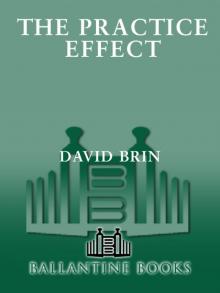 The Practice Effect
The Practice Effect Infinity's Shore
Infinity's Shore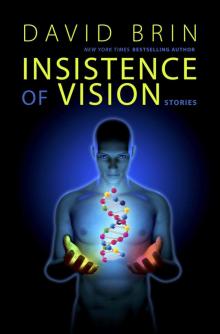 Insistence of Vision
Insistence of Vision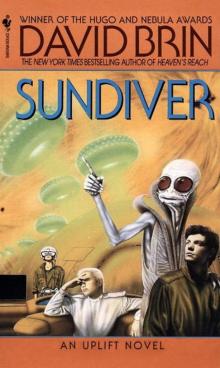 Sundiver
Sundiver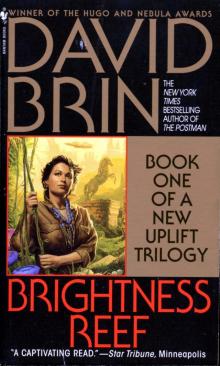 Brightness Reef
Brightness Reef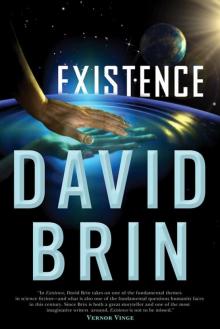 Existence
Existence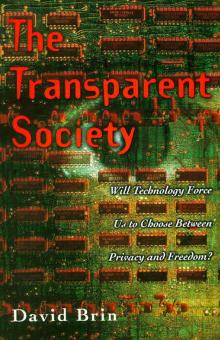 The Transparent Society
The Transparent Society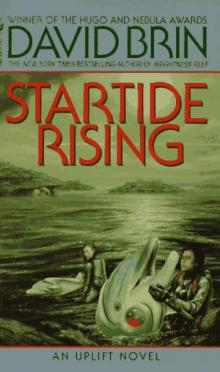 Startide Rising
Startide Rising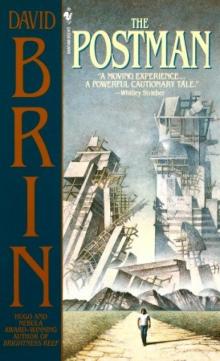 The Postman
The Postman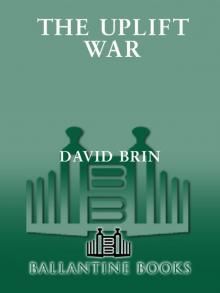 The Uplift War
The Uplift War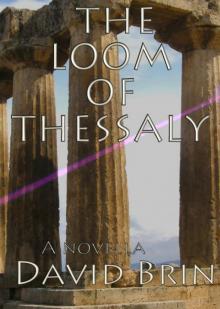 The Loom of Thessaly
The Loom of Thessaly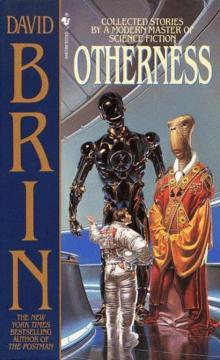 Otherness
Otherness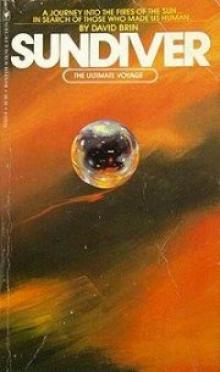 Sundiver u-1
Sundiver u-1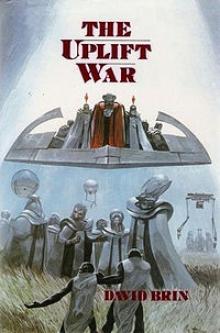 The Uplift War u-3
The Uplift War u-3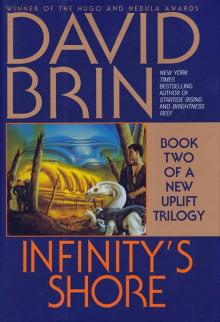 Infinity's Shore u-5
Infinity's Shore u-5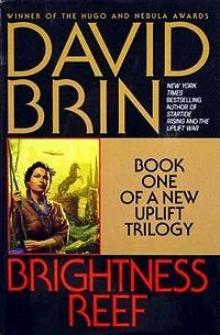 Brightness Reef u-4
Brightness Reef u-4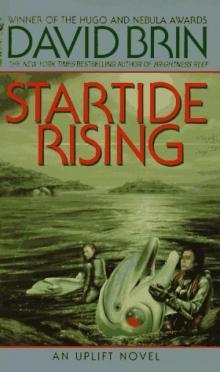 Uplift 2 - Startide Rising
Uplift 2 - Startide Rising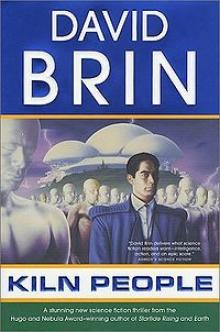 Kiln People
Kiln People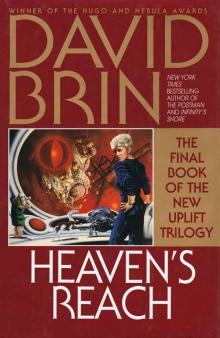 Heaven's Reach u-6
Heaven's Reach u-6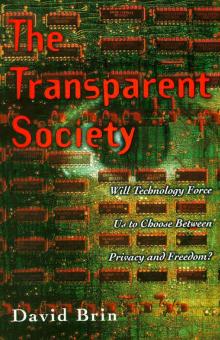 The Transparent Society: Will Technology Force Us to Choose Between Privacy and Freedom?
The Transparent Society: Will Technology Force Us to Choose Between Privacy and Freedom?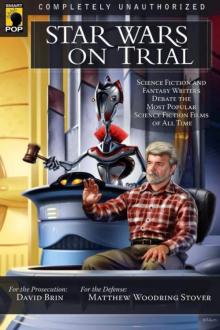 Star Wars on Trial
Star Wars on Trial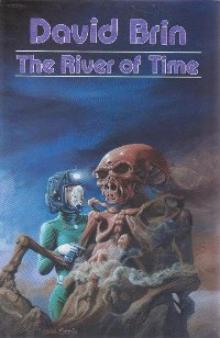 Lungfish
Lungfish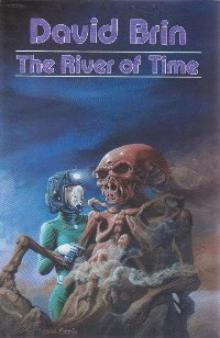 Tank Farm Dynamo
Tank Farm Dynamo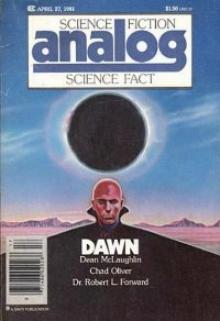 Just a Hint
Just a Hint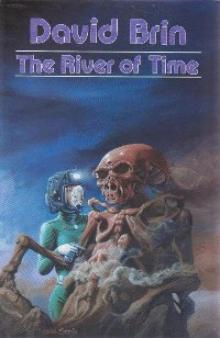 A Stage of Memory
A Stage of Memory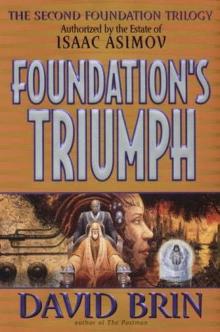 Foundation’s Triumph sf-3
Foundation’s Triumph sf-3 Thor Meets Captain America
Thor Meets Captain America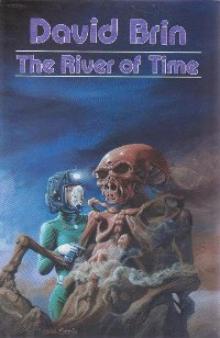 Senses Three and Six
Senses Three and Six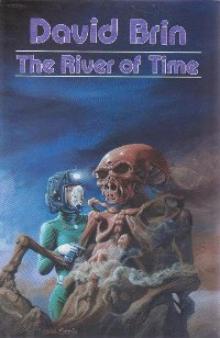 The River of Time
The River of Time Chasing Shadows: Visions of Our Coming Transparent World
Chasing Shadows: Visions of Our Coming Transparent World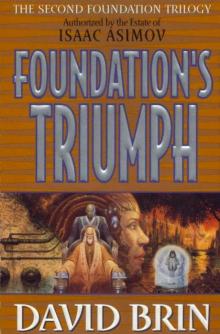 Foundation's Triumph
Foundation's Triumph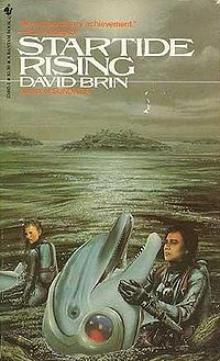 Startide Rising u-2
Startide Rising u-2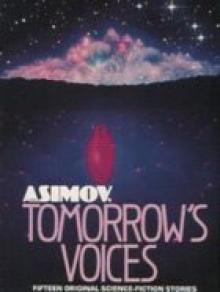 The Fourth Vocation of George Gustaf
The Fourth Vocation of George Gustaf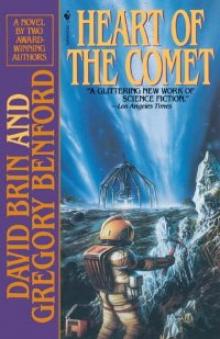 The Heart of the Comet
The Heart of the Comet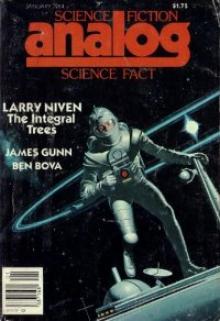 The Crystal Spheres
The Crystal Spheres